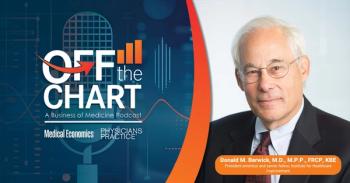
How a Physicians’ Organization Plans to Reform Healthcare
A Washington, D.C.-based, nonprofit advocacy group has refocused its mission from opposing the Affordable Care Act to fixing it.
There are many problems with the Affordable Care Act. But a full repeal of the law seems unlikely, regardless of who wins the election next month. Attention has turned in some quarters, then, not to overturning the law but to fixing it.
First, let’s take a look at what’s wrong with the ACA.
“The ACA got it wrong in its fundamental premise,” according to Kathryn Serkes, co-founder and CEO of the Doctor-Patient Medial Association (DPMA), “and that is presuming that providing widespread access to insurance equals widespread access to care.” My company has worked on a pro-bono basis for the DPMA and they’ve retained us for possible contractual work in the future, though no paid work has yet been performed.
Fixing healthcare’s problems will ultimately require aligning physicians, allied healthcare professionals, hospitals, long term care, the medical insurance, device, diagnostics supply and pharmaceutical industries, along with a dozen others and the general public to a common goal.
Too ambitious? Maybe, but consider three things:
- Effectively reforming healthcare is in the common interest of the healthcare industry;
- Effectively reforming healthcare is in the national interest because it affects our economy, national security and common health and welfare; and,
- More than enough resources already exist within the system.
The first two realities are obvious, and few would dispute them. The third item is a newly realized opportunity thanks to a recent comprehensive report by the
DPMA’s strategy is to make series of fundamental reforms to capture waste and reallocate it to provide access to care to all Americans using traditional market forces.
“We believe it is possible, if the industry works in its common interest to make fundamental reforms, to replace revenue presently being wasted in unnecessary, improperly regulated and overpriced services with volume by increasing the number of Americans with affordable access to care,” said Mark Schiller, MD, DPMA’s co-founder, “giving the public, healthcare industry and government a simultaneous win.”
Schiller also believes “that industry-led reform needs a catalyst to get it started, an information hub to make it happen and a referee to keep it honest, and we have decided to repurpose our entire organization to serve those roles.”
Despite the daunting prospects of funding and managing a program of this size, which will require broad financial and volunteer support, DPMA is forging ahead with its five-point, 10-year plan to reduce $4-5 trillion in cost, improve outcomes and fund access to care to all Americans:
- Reduce Unnecessary Services
- Reform Medical Liability (eliminate defensive medicine)
- Require a disclosure of cost to patient prior to performing non-emergency services
- Disclose prices to allow comparison
- Reduce Excessive Administrative Costs
- Eliminate duplicative costs of regulatory and insurance recordkeeping
- Eliminate unproductive documentation
- Reward electronic medical record users with accelerated payment
- Reduce Inefficient/Ineffective Services
- Coordinate care effectively using care coordination tools
- Establish standards for best practices and accredit clinicians on new techniques, therapies and protocols to reduce medical errors
- Track patient satisfaction and make results publicly available
- Reduce Excessive Costs Caused by Outdated Regulatory/Legal Liability
- Separately fund FDA approval and regulatory oversight by assessing a tax on all net sales to enable innovation by small business and reduce cost of market entry
- Update patent laws and reform USPTO to speed intellectual property protection and products to market
- Award double reasonable and customary legal costs to plaintiff for successful patent infringement prosecution to provide small companies and innovators access to the system
- Episodic and Chronic Disease Management and Prevention
- Improve health literacy for physicians and patients including clear, concise instructions; employ technology to provide automated reminders to encourage compliance
- Waive deductible and co-pay for annual physical exam and reimburse for accredited behavioral, nutritional and exercise counseling.
Newsletter
Optimize your practice with the Physicians Practice newsletter, offering management pearls, leadership tips, and business strategies tailored for practice administrators and physicians of any specialty.









